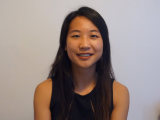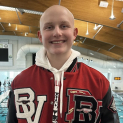Knocking out CD38 in T Cell Acute Lymphoblastic Leukemia

Background
Acute lymphoblastic leukemia (ALL) is a form of cancer of the white blood cells caused by the overproduction and accumulation of cancerous cells known as lymphoblasts. These lymphoblasts can arise from two different cell types known as T or B cells (designated as T-ALL or B-ALL). Both comprise one of the most common cancers among children and are the most frequent cause of death from cancer before 20 years of age. T-ALL is a particularly aggressive cancer. Significant advances in the treatment of T-ALL have improved outcomes, however those with relapsed disease have a dismal prognosis with survival reported less than 15% and T cell malignancies have fewer options for novel treatment strategies. Recently, the use of targeted immunotherapy has evolved as an effective approach to fight cancer cells. Immunotherapy involves empowering the immune system to kill cancer cells, however its efficacy relies on the identification of a target expressed primarily by the cancer cell in order to impair its ability to survive. We have recently identified and demonstrated that CD38 is a potential target. CD38 is expressed at high levels on a broad panel of T-ALL, while normal cells express low levels of CD38. Further, we have recently demonstrated that targeting CD38 using a drug called daratumumab dramatically decreases T-ALL cancer cells in human-derived animal models. Therefore, CD38 is a potentially valuable target in the development of immunotherapy for T-ALL.
Project Goal
We propose to further elucidate the role of CD38 in T-ALL by removing it from the cell surface with a novel technology known as CRISPR. Given the impact of daratumumab in T-ALL, we similarly believe the loss of CD38 will effect survival of the cancer cell. Importantly, this project will influence our understanding of T-ALL pathogenesis and will influence therapy options for children with T-ALL in the near future.
Mentored by Dr. Karen Bride
Children’s Hospital of Philadelphia, Philadelphia, PA

